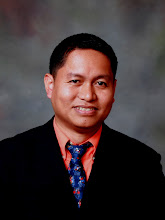Tucker, Gene M. “Prophetic Speech.” In Interpreting the Prophets, ed. James Luther Mays and Paul J. Achtemeier. Philadelphia: Fortress Press, 1987. 27-40. (IP)
Yates, Kyle M. Preaching from the Prophets. Nashville, TN: Broadman Press, 1942. (PP)
Prophets are preachers of their own age. Their forerunners are “seers” (Ro’eh) who have “special power of sights” concerning the unknown and future, just like the OT “gazers”(chozeh) known for their reception of truth despite of their behavior. Prophets are “interpreter” of time (PP,1). Hence, they communicate direct messages from Yahweh, as well as announce future events in their prophesying. These are the fundamental factors to their vocation and work (IP,39). Several characteristics can be known concerning the prophets of old. 1) They were uncompromising individualists. 2) They were conscious about God’s calling upon them. 3) They were aware of their special access to God for knowledge. 4) They were men of action, usually with rugged composure and unconventional character. 5) They were more conscious about God’s authority than other powerful people. 6) They were men of prayer and solitary communion. 7) They lived pure and consecrated lives. 8) They were outspoken critic of specific social evils. And 9) they are revealer of the future (PP, 3-4). To “prophesy” means to speak but even though they spoke of divine oral communication—of which they were primarily known—they are also writers of their own right (IP,27). Their call and work were distinctly known for their oral communication of divine words. When they utter prophetic words through God’s Spirit, their personalities and idiosyncrasies were also active in the process of speaking (PP,6). There are at least three major genres of the prophetic books. First is “reports” which is usually written in the superscriptions of the book or notations concerning the prophetic speeches, like in Jer. 21:1. Second is the “speeches” in narrative forms to stir interest and solution to the tension. Their personal testimony of divine calling can be placed here. Third is the “prayers” where words of praise, complaints, and intercessions belong. These three genres are intertwined, not independent. Usually, these speeches or messages are short, given in address to the people from God. Hence, “any address by a prophets speaking as a prophet” is considered prophetic speech (IP,29).
Prophetic speech, however, may be distinct from divine “oracles” spoken through intermediate messenger. The divine communication can be solicited and unsolicited in nature, but it is possible the prophetic speech can be considered “unsolicited” oracle as Yahweh’s own words (IP,30). Hence, prophets do not carry “mere messages” but oral communications authored and authorized by Yahweh. As messengers of God, they—as a person—also have authority in relation to their authenticity as speakers or preachers. Their words are spoken in the power of the Spirit without altering their human consciousness. Even when they speak about the future in vision report, they also do symbolic actions and corresponding interpretations to the act and speech. Though there is a question whether message of “woes” are still considered Yahweh’s words, there is a possibility that they were not given as Yahweh’s utterance to the people. Usually, the “woe oracles” does not convey revelation about the future, but denunciation of present activities made by the community (Ibid., 33). Thus, the prophet’s words are form of divine communication towards the community, to speak of the present as well as the future, to live up to his message, to critique the status quo, and denounce the evil of times.


0 Comments:
Post a Comment
<< Home